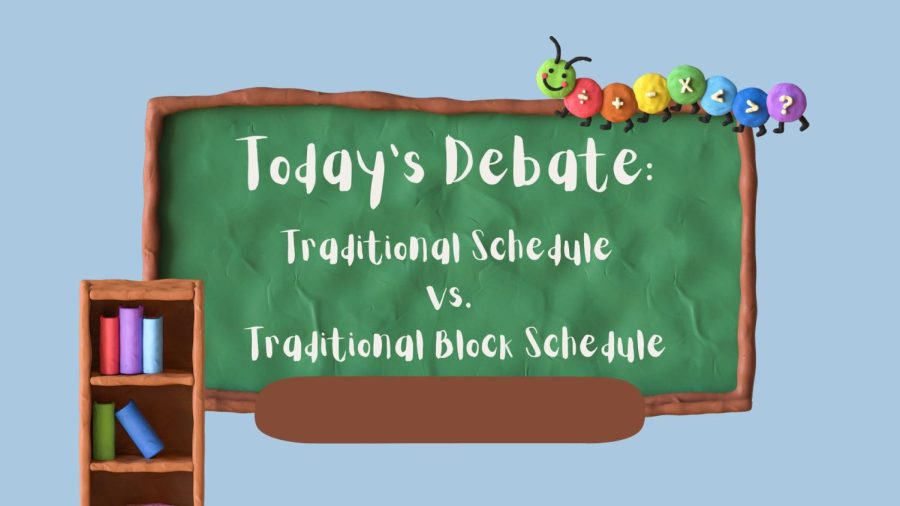Traditional vs. block schedule
Originally, high schools favored the traditional schedule because of its simplicity, but soon developed a stronger method for student success. The traditional block schedule serves as an opportunity for students to enroll in 32 classes, and receive the time to focus on each course. Despite minor flaws in the block method, students enjoy the change in routine, and the time they can spend on four classes rather than seven. “The block schedule helps me meet and get to know more people instead of being around the same people for an entire year. I also like getting new classes and different lunches where I can make friends that I would not have made without a change in schedules,” junior Holly Stallings said.
August 24, 2022
High schools throughout the country adopt different scheduling methods such as the traditional block schedule and the traditional schedule to adhere to students’ needs. The two schedules allow for academic progress and student success while targeting various factors such as the depth of information and the quality of learning. However, several would argue against the traditional block schedule, but fail to realize all of the perks that this method puts forward.
The traditional seven-period schedule arranges the classes in a year-long manner. Unfortunately, the traditional method of scheduling results in a heavy workload due to the number of classes, negatively affecting students’ time management skills.
High schools using the block rotation enroll students in four classes that last 90 minutes each as compared to the traditional schedule’s 60-minute classes. When the semester comes to an end, students will turn over to a new set of four classes for the next semester. This method grants them the time to equally divide their attention to their classes, and take additional courses that the traditional schedule does not offer.
“I like [the block schedule], I hear about other schools having seven or eight classes every day and that seems so much more stressful to me than four [classes]. Also, there are a lot fewer books and physical things to carry around and keep up with,” junior Holly Stallings said.
With 7% of high schools involved in Advanced Placement (AP) programs, AP students argue that the block schedule interferes with their exam scores; students who took APs during the fall semester struggle to recall information they learned months prior to their exam. Additionally, the College Board administers exams in early May, putting a time crunch on classes during the spring semester. However, reports show an increase in AP students enrolled in a block schedule scoring threes and fours in Orange County, Virginia.
“I would say [the block schedule] makes AP exams more difficult, but as long as you study a little extra, it is definitely very possible to score well. With the traditional schedule, all of your classes start [at the beginning of the fall semester] and finish [at the end of the spring semester.] [The traditional schedule] is not that big of an advantage for the AP exam, because the first half of everything you learned was still a semester ago. At least with the block schedule, if you have [your class] in the spring semester, you learned everything in the most recent semester. It balances out,” junior Ryan Lacey said.
Even though the switch from the traditional schedule to the block schedule requires time to adjust, the pros outweigh the cons. Students will benefit at the year’s end, not feeling the burden of stress that excessive schoolwork hands them.






